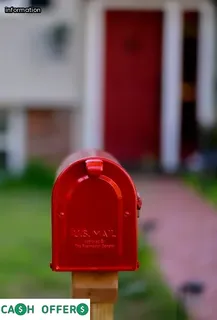When selling a home in the state of Colorado, property owners have certain disclosure obligations. These include disclosing to potential buyers any material defects or hazards that may affect the value or use of a property.
Sellers must also disclose any known environmental hazards, such as lead paint or asbestos, as well as other relevant information about their property. Additionally, they should provide prospective buyers with an accurate and detailed description of the property's condition and its features.
Although sellers are not required to inspect their properties for potential problems, they should be aware of any issues that could affect a buyer's decision to purchase a property. Furthermore, sellers must inform buyers if the property is part of any special tax districts or zoning regulations that may affect ownership rights and responsibilities.
By understanding these requirements and taking into account all relevant information about their properties, Colorado real estate sellers can ensure they meet their disclosure obligations when selling a house.

When selling a property in Colorado, it is important to understand the federal disclosure requirements associated with the sale. Sellers are obligated to disclose any known material defects or issues that could affect the value of the property.
This includes physical defects such as plumbing and electrical problems, safety hazards like lead paint, or environmental issues such as radon gas. Sellers should also disclose any information that could have an impact on the buyer’s decision to purchase, such as neighbors' disputes or flooding issues.
Additionally, all sellers must provide a Seller’s Property Disclosure form to buyers outlining all known facts about the property and its condition prior to signing a contract. To ensure compliance with state and federal laws, it is essential for sellers to recognize their obligations and take responsibility for disclosing any pertinent information when selling their home.
Exploring Colorado's home disclosure laws is essential for anyone selling a house in the state. Property disclosure obligations in Colorado require sellers to provide potential buyers with information about the condition of their home prior to closing.
This includes any material facts or defects that could affect the value of the property and are not generally visible, such as water damage, lead paint, or structural problems. In addition, sellers must disclose any known hazardous materials on the premises such as asbestos or radon gas.
Providing this information helps buyers make an informed decision when purchasing a house and can help protect both parties from potential legal action down the road. It is important to keep in mind that failure to comply with Colorado's home disclosure laws may result in fines or other penalties for those involved in the sale.
Knowing what is required of you as a seller can help ensure that all parties involved have a smooth transaction and avoid costly mistakes.

When selling a home in Colorado, the seller must provide certain documents to the buyer. These documents are collectively known as seller disclosure forms.
It is important for sellers to understand their obligations when it comes to providing these forms, as failure to do so can lead to legal action being taken against them. The most common form required is the Real Estate Commission Seller's Property Disclosure Form, which requires the seller to disclose any material defects of the property that could influence a buyer's decision to purchase it.
This can include anything from pests and mold infestations to structural damage or other issues such as water infiltration or flooding. In addition, sellers must also provide additional documentation such as tax records or title reports if requested by the buyer.
It is essential for sellers to take their time when filling out the seller disclosure forms and make sure they accurately represent all defects of the property in order to avoid any potential legal repercussions down the line.
Selling a house in Colorado comes with certain property disclosure obligations. As the seller, it is important to be aware of the method and timing for these disclosures.
Generally, sellers must make a legally-required disclosure statement to potential buyers within three days of signing a written contract. The form must include details about any material defects or other issues that could affect the sale of the house or its value.
It must also provide information regarding whether there are any known environmental hazards on the property, such as lead paint or asbestos. Furthermore, Colorado sellers are required to complete and submit to buyers a Residential Property Disclosure Statement which includes over two dozen questions about various aspects of the home, such as plumbing and electrical systems, heating and cooling systems, foundation issues, termite damage, flood risks, and so on.
Additionally, it is important to note that all disclosures should be made honestly and accurately; failure to do so could result in legal repercussions for the seller.

When selling a house in Colorado, property owners and sellers must be aware of their disclosure obligations. Under the state’s real estate regulations, sellers must provide buyers with information about any known physical defects or other issues affecting the property.
This includes information about building materials, roof conditions, systems and infrastructure on the property, such as plumbing and electrical wiring. Sellers must also reveal any environmental hazards that may exist on the premises, such as lead paint or radon gas contamination.
Additionally, if the seller has knowledge of any problems related to public services or utilities that may affect the condition of the property, this should be disclosed to potential buyers. Buyers have a right to know about all potential risks associated with the purchase of a home so they can make an informed decision before signing on the dotted line.
Selling a house in Colorado comes with certain obligations, and understanding the state's real estate disclosure laws is important for any seller. In general, sellers must disclose any known material defects or facts about their property that could affect its value or desirability.
However, there are nuances to Colorado's disclosure requirements that can be difficult to navigate without assistance. It is important for sellers to understand the scope of their obligations and potential liabilities under the law before listing their home for sale.
To help maximize protection from legal action and ensure compliance with all relevant statutes, it is advisable to consult with a knowledgeable real estate attorney who can provide additional information on Colorado's property disclosure obligations when selling a house. An attorney can also advise on other applicable laws and regulations as well as best practices for avoiding disputes during the sale process.

When selling a house in Colorado, consulting with a real estate attorney can be invaluable to ensure that all of the property disclosure obligations are met. Property disclosure obligations may include providing buyers with information about the home including any known defects or hazards on the property.
Real estate attorneys understand what is legally required and can provide advice to sellers so they do not overlook any important details. In addition, they can review any documents that need to be signed prior to closing and ensure everything is completed in compliance with Colorado law.
A real estate attorney can also provide guidance regarding negotiations, particularly if there are complex issues involved. Consulting with a real estate attorney throughout the process of selling a house in Colorado is an important step for minimizing potential risks and ensuring everything goes as smoothly as possible.
When selling a house in Colorado, it is important for sellers to understand their obligations when it comes to disclosing property information. By analyzing the utility menu requirements for sellers, they can better understand what information needs to be disclosed.
Most states require that sellers provide potential buyers with details about the condition of the home and any existing warranties. In Colorado specifically, sellers must disclose if any major appliances, such as the furnace or water heater, have been replaced in the past three years.
They must also provide written documentation that shows any repairs made during that time period, including any inspections and certifications by licensed contractors. Furthermore, they should include details about any hazardous materials or environmental hazards on or near the property.
Finally, they must provide an accurate description of current utility services at the property and how those costs are paid by either seller or buyer. Understanding these requirements can help ensure compliance and a successful sale of the home.

When selling a house in Colorado, it is essential for sellers to be aware of their property disclosure obligations.
According to the Colorado Real Estate Commission, a seller must provide potential buyers with a Property Disclosure Form that details any known material defects or conditions of the home.
This form must be completed and signed by the seller, and must include such information as environmental hazards or conditions, building code violations, water damage, presence of mold, lead-based paint, boundary disputes, and any other conditions that could affect the value of the property.
Knowing what needs to be disclosed when selling a house in Colorado is key for sellers so that they can remain compliant with state law and avoid future legal issues.
When applying family law to residential real estate transactions in Colorado, it is important to understand the state's property disclosure obligations. While not legally required for all home sales, many sellers choose to provide a full disclosure of facts about their property.
This can include information about any structural damage, defects, or other issues with the house that could affect the value of the property. Furthermore, family law requires that buyers be made aware of potential risks associated with buying a home from a seller who is also a relative.
This can include an understanding of any financial or legal interests that may be connected to the sale and how these interests could impact the transaction. In addition, it is important for both buyers and sellers to be aware of any applicable zoning laws or regulations that could affect the sale before entering into an agreement.

When a homeowner in Colorado decides to put their house up for sale, they have an obligation to disclose any and all issues or defects of which they have actual knowledge. This includes, but is not limited to, any known problems with the plumbing, electrical wiring, roofing, or foundational components of the property.
It is important that any such problems are disclosed as soon as possible so that potential buyers can make an informed decision about whether or not they wish to purchase the home. The seller should also provide a list of any repairs completed on the property within the past five years, which may require additional disclosure in certain circumstances.
It is essential that sellers in Colorado understand their obligation when selling a house and ensure that the buyer is aware of all relevant information prior to closing on a home.
When selling a house in Colorado, there are many other property disclosures that must be made in addition to the typical disclosure obligations. These additional requirements include disclosing any known defects or problems with the property’s plumbing, heating, electrical, structural, or septic systems.
The seller must also disclose whether the home has ever been tested for radon gas and if so, the results of that test. Additionally, any known asbestos present on the premises must be disclosed.
Furthermore, any information related to a death that occurred on the premises must also be disclosed. Lastly, it is important to note that Colorado law dictates certain repair orders may need to be completed prior to sale and such orders must be disclosed as well.
In order to ensure compliance with all of Colorado’s disclosure requirements when selling a house, it is important to fully understand all applicable regulations before making any offers or signing contracts.

When selling a house in Colorado, it is important to be aware of the state's property disclosure obligations. Knowing these obligations can help sellers protect themselves from potential legal issues.
To ensure they are aware of all the applicable laws, sellers should refer to legal guides for home sellers in Colorado. There are a variety of online resources which provide detailed explanations and interpretations of the relevant statutes.
Additionally, many local real estate attorneys can provide guidance on understanding and fulfilling all disclosure requirements. Furthermore, some county governments have published guidelines that explain what information must be disclosed when selling a property so buyers are provided with full disclosure prior to purchasing.
By utilizing these sources to become knowledgeable about Colorado's property disclosure obligations, home sellers can be sure they are taking the necessary steps to protect their rights and interests when selling a house in the state.
When selling a house in Colorado, it is important to assess required disclosures regarding environmental hazards. These include potential exposure to hazardous materials like asbestos, lead-based paint and radon.
Asbestos may be found in insulation, ceiling tiles and roofing materials, while lead-based paint can be present on walls and woodwork. Additionally, radon is a naturally occurring gas that can accumulate indoors and cause health risks if left unchecked.
Sellers need to disclose any knowledge of these hazards as well as any measures taken to reduce them. In some cases, testing for asbestos, lead-based paint or radon may be necessary before putting a home on the market.
All of this information should be made available to the buyer during the transaction process in order for them to make an informed decision about the property being purchased.

When selling a house in Colorado, it's important to understand the obligations and disclosures required by law to protect both buyers and sellers.
Investigating how natural elements can affect property condition disclosures is key, as well as uncovering any necessary tax liens or easements that must be disclosed.
Establishing awareness of insurance policies needed for disclosure is also important, and determining the effectiveness of relevant financing documents is paramount.
Additionally, knowing when to include professional reports with seller disclosures can help ensure all legal obligations have been met.
When selling a house in Colorado, there are certain mandatory property disclosures required by law. These include information about the condition of the premises, any known defects, environmental hazards, water rights/drainage issues, and other facts that may affect the value of the home.
Sellers must also provide a Natural Hazard Disclosure Statement or a Transfer Disclosure Statement (TDS). The Natural Hazard Disclosure Statement provides details on potential natural disasters such as floods, earthquakes and wildfires.
The TDS outlines known material facts regarding the property including structural elements, plumbing systems and other mechanical components. Sellers should be aware that failure to make these required disclosures can result in penalties or actionable claims against them.

In Colorado, the sale of a residential property carries with it certain obligations that must be met by the seller. Failure to disclose these obligations can result in legal ramifications for the seller.
Seller failure to disclose Colorado is a form of fraud and can include misrepresentations about material facts known to the seller that could affect a potential buyer’s decision to purchase the property. Typical items that must be disclosed include structural defects, neighborhood nuisances, zoning issues, lead paint and other hazardous materials on or near the property, environmental contamination and any current or past litigation involving the property.
It is important for sellers to understand their legal requirements when selling a house in order to avoid costly legal repercussions.
Yes, a seller's property disclosure is mandatory when selling a house in Colorado. The Colorado Real Estate Commission requires sellers to complete a real estate transfer disclosure form that discloses any known material defects with the property.
This includes issues such as structural damage, plumbing issues, and pest infestations. Sellers must provide buyers with this information before closing on the sale of the home.
In addition to the transfer disclosure form, sellers may also be required to provide additional documents regarding local laws or ordinances related to properties in their area. Colorado law also requires that buyers be provided with details about hazardous substances or materials present on or near the property, including lead-based paint.
Failure to disclose potential issues can result in legal action from buyers after closing on a sale. It is important for sellers to understand their obligations regarding disclosing known material defects so they can properly protect themselves and their buyers during the sales process.
When selling a house in Colorado, it is the seller's responsibility to complete the property disclosure form. The Colorado property disclosure form discloses all known information about the condition of the home and its systems and must be completed by the seller before any sale can take place.
By law, this document is required to be provided to prospective buyers during negotiations or at closing. It is important for sellers to understand their obligations under Colorado state law when it comes to completing the property disclosure form, especially since failure to do so can result in legal action.
Sellers should review applicable laws carefully and consult with an experienced real estate attorney if they have any questions or uncertainties about completing the form correctly. Additionally, sellers should keep records of all disclosures made in case of any future disputes.
Completing the seller's property disclosure form correctly is essential for protecting both buyers and sellers in a real estate transaction in Colorado.
A: When selling a house in Colorado, you must disclose any known facts about the soils that may affect the use and enjoyment of the property. You must also disclose if there are any lawsuits against the property or other legal issues affecting the real property. Finally, you must disclose whether you are using a real estate agent to assist in the sale of the property.
A: When selling a house in Colorado, you must disclose any latent defects that could affect the property's insurability to the insurer. This includes any material defects or history of structural problems that may not be apparent during an inspection.

A: In Colorado, sellers must disclose any known material defects of the property including faults related to soils, the status of any MLS listing agreements and trial period provided by a real estate agent, any pending or prior lawsuits concerning the property, and information about the homeowners insurance policy.
A: Yes, you must disclose any information regarding attorney fees, mineral rights, and potential methamphetamine contamination when selling a house in Colorado. It is also recommended that you seek legal advice from a qualified real estate attorney to ensure that all laws and regulations are being followed throughout the process.
A: Yes, when selling a house in Colorado, you are obligated to disclose any information related to the availability of drinkable or potable water from the community.

A: Yes, as a seller in Colorado you must legally disclose any material facts that may impact the sale of the property. This includes any breach of contracts, bloggers associated with the property, the zip code where it is located, and any null and void agreements related to the sale.
A: Yes, sellers must disclose any transportation routes that may affect the value of the property, as well as any stigmata associated with the property to potential buyers.
A: Yes, when selling a house in Colorado you are required to disclose the ownership of any oil and gas or mineral estate rights that may be associated with the property.

A: Under Colorado law, sellers must provide potential buyers with a residential real property disclosure form that discloses any known information about soils, real estate agents, lawsuits, attorney fees, mineral rights, methamphetamine contamination or legal advice.
A: Yes, when selling a house in Colorado you must disclose any applicable HOA fees, home inspector fees, and the results of any home inspection.
A: Yes, when selling a house in Colorado it is important to disclose evidence of expert advice, fees associated with the sale, and mineral rights.

A: Yes, as the seller of a property in Colorado, you are required to make certain disclosures about the property including Energy Star certification and construction details. You must also disclose any known defects or problems with the property.
A: When selling a house in Colorado, you must disclose any known material defects of the property, including so-called "stigma factors" like soils conditions, lawsuits and other matters that might adversely affect the value or desirability of the property. You are not required to disclose attorney fees, mineral rights, methamphetamine contamination or legal advice as they are not covered under Colorado real estate laws.
A: Sellers must disclose any defects or issues with the property that are known, including but not limited to structural and mechanical condition, environmental hazards such as lead paint or asbestos, soil conditions, real estate agents and lawsuits related to the property, attorney fees, mineral rights, methamphetamine contamination or legal advice.

A: In Colorado, sellers are legally obligated to complete and provide a Seller’s Disclosure Statement, a Real Estate Transfer Disclosure Form, and a Lead-Based Paint Disclosure. These forms must be filled out prior to the sale of the property and must include information such as soil issues, real estate agent involvement, lawsuits related to the property or past ownership, and any other material facts related to the real property.
A: In Colorado, the seller must disclose any information they have about the presence of radon gas in their home. Additionally, sellers are required to provide potential buyers with a Radon Gas Disclosure Form which outlines any measures that have been taken to mitigate the risk of radon exposure.
A: When selling a house in Colorado, sellers must provide the buyer with a Property Disclosure Form, a Real Estate Transfer Disclosure Statement, and a Seller’s Property Disclosure Notice. These documents are required by law and contain important disclosures related to soils, real estate agents, lawsuits, attorney fees, mineral rights, methamphetamine contamination or legal advice.

A: Under Colorado real estate law, sellers are required to disclose any material defects in their property that have been known prior to the sale. This includes disclosing issues related to soil conditions, structural integrity, plumbing and electrical systems, roof condition, environmental contamination and any other physical or legal factors that may affect the value of the property.
A: When selling a house in Colorado, sellers must disclose any known defects, material facts, and other information that may affect the value of the property. This includes disclosing any soil problems, lawsuits involving the property, real estate agents involved in the sale of the property, attorney fees related to the sale, mineral rights associated with the property, methamphetamine contamination on the premises or legal advice received about the sale.
A: When selling a house in Colorado, you are obligated to disclose any material facts that you have current actual knowledge of regarding the property such as soil conditions, real estate agents, lawsuits, attorney fees, mineral rights, methamphetamine contamination or legal advice.

A: When selling a house in Colorado, sellers must disclose any known facts that may materially affect the value of the property, including but not limited to, zoning violations, building code violations, hazardous waste or material defects. Additionally, sellers should provide buyers with a Real Estate Transfer Disclosure Form which requires disclosure of all parties' knowledge of the condition of the home and its contents.
A: When selling a house in Colorado, you are obligated to disclose any known material defects or issues related to soils, real estate agents, lawsuits, mineral rights, attorney fees, methamphetamine contamination, legal advice and any other relevant information in the Real Estate Transfer Disclosure Form according to Colorado real estate law.
A: When selling a house in Colorado, sellers are required to disclose any known material defects related to the property, including any structural problems, environmental hazards, and title issues. The seller must also provide the buyer with a Real Estate Transfer Disclosure Form outlining all necessary information regarding the property.